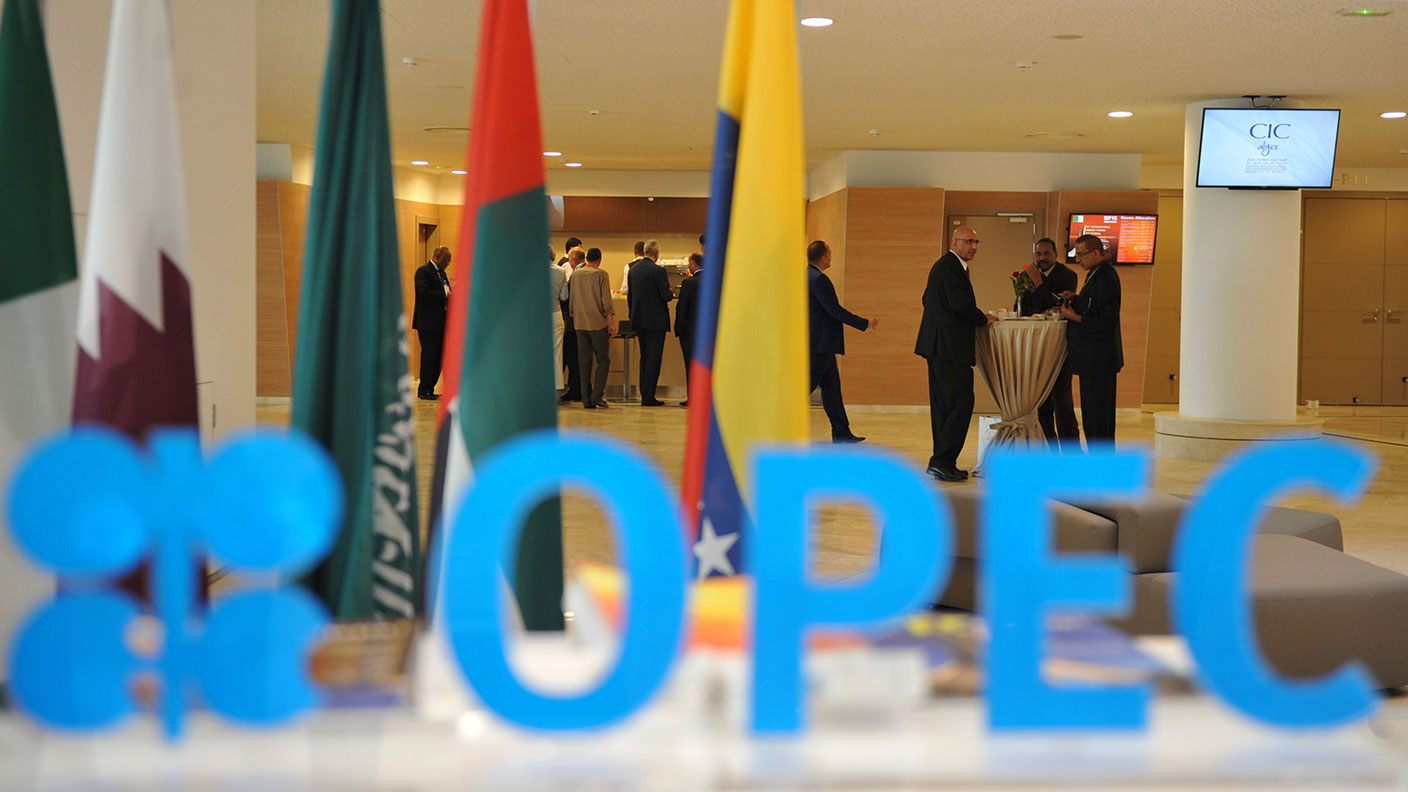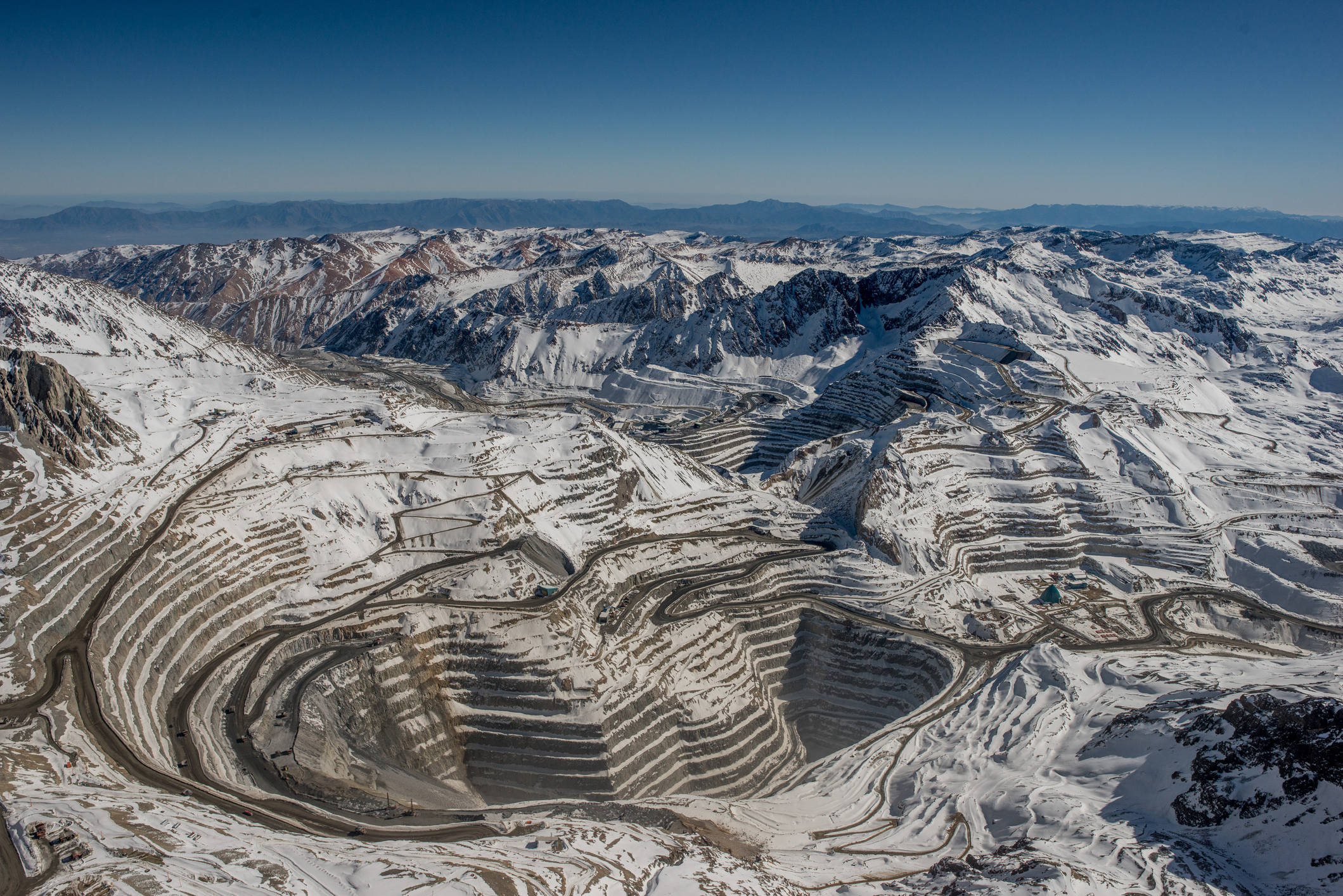The oil price is spiking higher – and there’s no reason to expect it to drop from here
The oil price has been climbing steadily over the last year or so. And with producers unwilling to raise output, it’s set to keep going. John Stepek explains what’s going on.


Get the latest financial news, insights and expert analysis from our award-winning MoneyWeek team, to help you understand what really matters when it comes to your finances.
You are now subscribed
Your newsletter sign-up was successful
Want to add more newsletters?

Twice daily
MoneyWeek
Get the latest financial news, insights and expert analysis from our award-winning MoneyWeek team, to help you understand what really matters when it comes to your finances.

Four times a week
Look After My Bills
Sign up to our free money-saving newsletter, filled with the latest news and expert advice to help you find the best tips and deals for managing your bills. Start saving today!
Oil (as measured by WTI, the US benchmark) hit a seven-year high yesterday.
Brent crude oil (the European benchmark) meanwhile shot above $82 a barrel for the first time in three years.
Why the surge? And what does it mean for investors?
MoneyWeek
Subscribe to MoneyWeek today and get your first six magazine issues absolutely FREE

Sign up to Money Morning
Don't miss the latest investment and personal finances news, market analysis, plus money-saving tips with our free twice-daily newsletter
Don't miss the latest investment and personal finances news, market analysis, plus money-saving tips with our free twice-daily newsletter
Opec is too disciplined for the market’s liking...
Oil cartel Opec-plus (that is, the usual Opec lot plus Russia) had a big meeting yesterday.
The oil price has been going up fairly strongly in the last year or so, but it’s been overshadowed somewhat by so many other commodities that it hasn’t really been drawing as much attention as it normally would.
However, now that we’re knee-deep in an energy crisis, when winter in the northern hemisphere hasn’t even begun, people are starting to pay attention.
Anyway, the oil cartel has been pretty disciplined in the post-Covid era. All the countries involved have been stung by collapsing oil prices and they’ve all been very wary of triggering another collapse.
Yet with prices rising at a solid clip and most of these nations quite keen to make more money, analysts and markets generally had expected yesterday’s meeting to end with a plan to increase crude production more significantly than they had already proposed.
But that’s not what we got. Instead, Opec said that it’ll stick to the current plan. That is, to only increase production by 400,000 barrels a day each month. That’s quite a gradual increase given that the global economy is opening back up again (in fits and starts).
Opec’s timing is really quite clever as well. The UN climate change talks are in Glasgow next month. For the next couple of months, politicians in developed markets are going to be competing with each other on who can pump out the greenest rhetoric. That’s going to make it quite tricky to publicly chide Opec for being stingy with what is, after all, a horrible dirty fuel of the past that we should all be glad to see the back of.
...and so are the US shale drillers
So what happens next? One assumption in the new era was that oil prices would be capped by US fracking. However, the problem there is that frackers have belatedly discovered price discipline.
There are some who have political interests in painting this as a “Joe Biden” issue. I have no idea how true that is – it might well be – but having seen how poorly Americans understand Brexit, I’m not going to bet that my Brit-centric grasp of US politics is any better.
And it doesn’t matter anyway. Scott Sheffield of Pioneer Natural Resources (the biggest shale operator) argues that “everybody’s going to be disciplined, regardless of whether it’s $75 Brent, $80 Brent, or $100 Brent… I don’t think the world can rely much on US shale. It’s really under Opec control.”
Shale companies are also having difficulty recruiting – particularly on the driver front (the shortage of truck drivers is global, despite what you may have read elsewhere). With operating costs rising they’re going to be even more wary about splashing the cash around.
Of course, Sheffield has an interest in talking things up and, whatever he says, there’s an oil price at which that “discipline” would break. But I don’t think we’re there yet.
So I can see oil prices continuing higher, particularly as the pressure increases on supplies of every other fossil fuel.
We’ve been suggesting you own oil majors since around March last year, and I see no reason to change that view now.
In the long run, are we going to move away from oil? Yes, of course. I hope so. If we don’t, it would suggest that humanity’s ability to innovate our way out of trouble really has reached some sort of peak.
However, that’s not going to happen overnight and in the meantime, a combination of ESG-mania and an over-reaction to last year’s negative oil prices has left the sector looking relatively cheap. And there aren’t many things that look cheap these days (no, not even after a couple of down-days on the S&P 500).
We’ll be discussing the energy transition and the best way to play it at the MoneyWeek Wealth Summit on 25 November. That’s a conversation I’m really looking forward to, I must admit – I’m keen to hear what our panellists have to say about it all. Make sure you don’t miss it – get your tickets here.
Get the latest financial news, insights and expert analysis from our award-winning MoneyWeek team, to help you understand what really matters when it comes to your finances.

-
 Should you buy an active ETF?
Should you buy an active ETF?ETFs are often mischaracterised as passive products, but they can be a convenient way to add active management to your portfolio
-
 Power up your pension before 5 April – easy ways to save before the tax year end
Power up your pension before 5 April – easy ways to save before the tax year endWith the end of the tax year looming, pension savers currently have a window to review and maximise what’s going into their retirement funds – we look at how
-
 Is the market missing the opportunity in energy?
Is the market missing the opportunity in energy? -
 Halifax: House price slump continues as prices slide for the sixth consecutive month
Halifax: House price slump continues as prices slide for the sixth consecutive monthUK house prices fell again in September as buyers returned, but the slowdown was not as fast as anticipated, latest Halifax data shows. Where are house prices falling the most?
-
 Rents hit a record high - but is the opportunity for buy-to-let investors still strong?
Rents hit a record high - but is the opportunity for buy-to-let investors still strong?UK rent prices have hit a record high with the average hitting over £1,200 a month says Rightmove. Are there still opportunities in buy-to-let?
-
 Pension savers turn to gold investments
Pension savers turn to gold investmentsInvestors are racing to buy gold to protect their pensions from a stock market correction and high inflation, experts say
-
 6 stocks to buy to invest in Latin America
6 stocks to buy to invest in Latin AmericaThe region is the world’s one-stop shop, boasting the raw materials required for the energy transition and key foodstuffs to cater for growing populations, says James McKeigue. Here’s how to profit.
-
 Where to find the best returns from student accommodation
Where to find the best returns from student accommodationStudent accommodation can be a lucrative investment if you know where to look.
-
 The world’s best bargain stocks
The world’s best bargain stocksSearching for bargain stocks with Alec Cutler of the Orbis Global Balanced Fund, who tells Andrew Van Sickle which sectors are being overlooked.
-
 Revealed: the cheapest cities to own a home in Britain
Revealed: the cheapest cities to own a home in BritainNew research reveals the cheapest cities to own a home, taking account of mortgage payments, utility bills and council tax